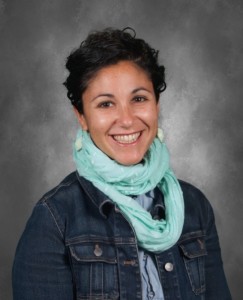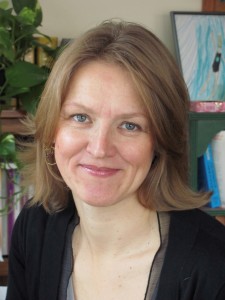In Fall 2016, ICNC launched its first ever grant program for high school educators from around the world to support development and implementation of educational initiatives on civil resistance movements and nonviolent action for high school students. Seven exceptional fellows were selected to develop and teach courses on this topic in different parts of the world in winter, spring and summer of 2017.
2016 High School Curriculum Fellowship awardees include:
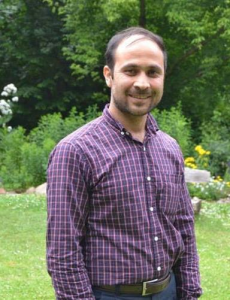 Ahmadullah Archiwal has two Masters (the first in Journalism from the University of Peshawar in Pakistan and the second in International Affairs from the New School University in New York). He has been leading a small organization, OSCAR, which is the flagship of the nonviolent civic mobilization in Afghanistan, for the last five years. They are the only organization teaching nonviolence in Afghanistan and have done pioneering work such as generating important contextual materials on the topic, including translating relevant books from English into local languages, writing a book on nonviolence, and conducting relevant workshops in different parts of the country.
Ahmadullah Archiwal has two Masters (the first in Journalism from the University of Peshawar in Pakistan and the second in International Affairs from the New School University in New York). He has been leading a small organization, OSCAR, which is the flagship of the nonviolent civic mobilization in Afghanistan, for the last five years. They are the only organization teaching nonviolence in Afghanistan and have done pioneering work such as generating important contextual materials on the topic, including translating relevant books from English into local languages, writing a book on nonviolence, and conducting relevant workshops in different parts of the country.
Course Title: Civic Education
High School: Umara Khan High School, Afghanistan
Abstract: This course aims to equip the students with a basic understanding of nonviolent civic mobilization, in addition to culturally specific tactics of nonviolent resistance. We will begin by discussing the history of nonviolent resistance, examining its effectiveness and the common misconceptions surrounding it. The course will then move to focus on forms of nonviolent resistance that have roots in Afghan culture. We will be reinforcing the idea that nonviolent civic mobilization has historically been used by Pashtuns and others living in the region. Our discussions will range in topic from Abdul Ghafar Khan to Pashtun Nationalism to contemporary civil resistance struggles in the Islamic world and beyond. We will examine the idea that nonviolent resistance is applicable not only in democratic societies, but in societies of all political makeups. The overall goal of the course is to reduce the group’s vulnerability to joining insurgency by educating them in nonviolent civic mobilization.
Elizabeth “Betsy” Cepparulo is a History teacher at Wilmington Friends School, in Wilmington, Delaware. She specializes in a course called Global Peace and Justice, which teaches world history through topics such as women’s rights, civil disobedience, social justice, and peace in a time of conflict. Prior to teaching, Betsy was an attorney in Pennsylvania for four years, focusing mainly on family law and criminal defense. She has her BA from Skidmore College, her JD from Temple University, and her Masters in Education Policy and Leadership from Stanford University.
Course Title: Nonviolent Direct Action
High School: Wilmington Friends School, Delaware
Abstract: In this course, students will explore civil resistance movements from both practical and personal standpoints. Practically, students will learn concrete steps to engaging in a nonviolent direct action (NVDA) campaign. This will differentiate civil resistance and NVDA from passivity, which is sometimes confused with peaceful resistance. Personally, students will study Gandhi and Indian Independence, James Lawson and MLK Jr with the Civil Rights movement, and finally Colombian civil resistance in the face of violence. Students will write their own NVDA plans, contemplate a “peace force,” and explore the pros and cons of fighting violence and oppression with active peace. In the end, students will be able to articulate concrete steps and nuanced perspectives in ending conflict with civil resistance.
Regina Feldman currently teaches IB Twentieth Century World History and Theory of Knowledge at the Montessori High School at University Circle in Cleveland, Ohio. She taught the previous year at the Affiliated High School of Peking University in Beijing, China. Regina Feldman holds a Master of Philosophy in Ethnology, Human Biology and Communication Theory from the University of Vienna, Austria, a Master of Arts in Medical Anthropology and a Ph.D. in Cultural Anthropology from Case Western Reserve University, which were both earned as a Fulbright Scholar. She also earned a Montessori Certificate in Adolescent Studies and is IB-trained in History, Theory of Knowledge, and Extended Essay. In addition to teaching humanities at MHS, Regina Feldman functions as a Montessori Advisor and Curriculum Trainer and has helped build MHS as a Curriculum Developer, Coordinator, and Documenter since the school’s inception in 2008. She is an avid traveller, yoga practitioner, runner, and cook.
Course Title: Rights and Protests: The American Civil Rights Movement and South Africa
High School: Montessori High School at University Circle, Ohio
Abstract: This course explores struggles for rights and freedoms through two case studies, the study of the Civil Rights Movement in the United States between 1954 and the passing of the Civil Rights Act in 1965 and the study of protests against Apartheid in South Africa, beginning with the election of the National Party in 1948 and ending with first democratic general elections in 1994. Students explore the nature of discrimination, methods of nonviolent resistance and the importance of leadership and organizations or parties in civil society. This course is driven by inquiry: every week, students spend time in “Archive”, using a variety of sources – written, digital, visual –to respond to a weekly Guiding Question and build timelines to trace the evolution of rights and protests in both countries. Work in the Archive will be supported by key lessons, Socratic seminars, academic debate, documentaries, and playing of the strategic game People Power. IB-style research papers, annotated bibliographies, and critical memos, class, seminar, and debate preparation and participation are formatively and cumulatively assessed. The course closes with a Colloquium on the Big Guiding Question about the effectiveness of nonviolent resistance actions for long-term positive societal change.
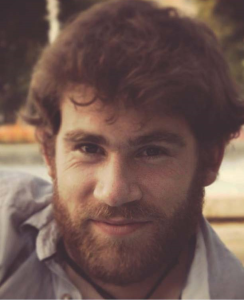 George Greskovits studied sociology and cultural history for his BA at the University of East London, Holocaust studies for his MA at Royal Holloway University of London, and enrolled to the doctoral program at University College London. Before co-founding the Milestone Institute, he worked as a researcher for historical documentaries and museum exhibits, research projects funded by the UK Arts & Humanities Research Council (A.H.R.C.), and taught through seminars as well as private tuition at UCL. He is currently working as the Senior Director of Academic Programs at Milestone, responsible for all academic activities of the institute as well as teaching history and social sciences.
George Greskovits studied sociology and cultural history for his BA at the University of East London, Holocaust studies for his MA at Royal Holloway University of London, and enrolled to the doctoral program at University College London. Before co-founding the Milestone Institute, he worked as a researcher for historical documentaries and museum exhibits, research projects funded by the UK Arts & Humanities Research Council (A.H.R.C.), and taught through seminars as well as private tuition at UCL. He is currently working as the Senior Director of Academic Programs at Milestone, responsible for all academic activities of the institute as well as teaching history and social sciences.
Course Title: Civil and Non-Violent Resistance
High School: Milestone Institute, Hungary
Abstract: The goal of the course is to introduce the students into the field of civil resistance studies, including its classical historical tradition as well as contemporary research findings. The module is therefore interdisciplinary and includes themes from political philosophy, political theory and empirical political science. Another goal of the course is to facilitate the discussion of the applicability and relevance of civil resistance to our contemporary societies. Special emphasis has been given to the historical and contemporary local context (i.e. Hungary), and an attempt has been made to countervail the androcentric bias of mainstream approaches to the history of civil resistance. We hope that students completing the course will depart with strong foundations in the subject as well as the ability to recognize the need for and the means of civil resistance that they can use for issues close to their heart.
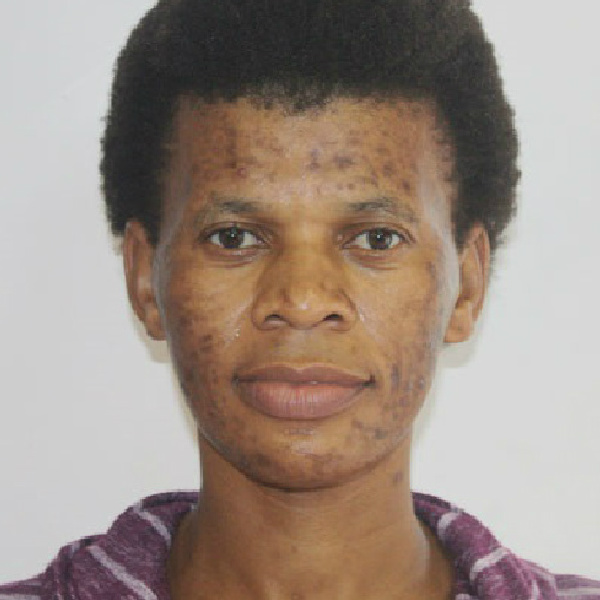 Gcina Makoba lives in the outskirts of the city of Durban in the Province of KwaZulu-Natal, South Africa, where she finished her high school education. Despite the systematic barriers of the past, she was able to obtain a Diploma in Education, a Diploma in Politics and Social Development, Participatory Action Research in Workers’ College, a B. Social Science in University of KwaZulu-Natal(UKZN), and is currently doing her Master of Development in the same institution, UKZN.
Gcina Makoba lives in the outskirts of the city of Durban in the Province of KwaZulu-Natal, South Africa, where she finished her high school education. Despite the systematic barriers of the past, she was able to obtain a Diploma in Education, a Diploma in Politics and Social Development, Participatory Action Research in Workers’ College, a B. Social Science in University of KwaZulu-Natal(UKZN), and is currently doing her Master of Development in the same institution, UKZN.
Course Title: Peaceful Resistance Course
High School: Imvaba High School, South Africa
Abstract: The course is an exciting, intense summary of peaceful resistance; it touches on the histories and the interrelationships among the Sub Saharan African countries, with the common feature of resisting the same injustice, colonialism, while denoting nonviolent resistance as an ever existing phenomenon in this part of the continent. It gradually introduces the tactics, strategies, advantages and disadvantages while teaching the reasons behind its effectiveness. The course gets into grips with the reality of unfavorable conditions that sometimes exist, and what can lead to mobilization backfiring through examining the dynamics that usually unfold. As the course gives the reasons of why peaceful resistance works, it also forces students who otherwise might have thought that a violent way of responding to injustices is the right or effective means of struggle to openly discuss and consider alternative stories and perspectives that are centered around nonviolent resistance actions.
 Brahim Bilal Ramdhane was born as a slave in Boutilimit, Mauritania, but was able to obtain freedom for himself through his passion for learning and the educational successes he achieved throughout his youth. He has been a high school philosophy teacher for close to thirty years, and has also worked with numerous NGOs and international development agencies and served as an independent election observer for Mauritania’s 2009 presidential election. The last several years, he has played a leading role in Mauritania’s anti-slavery movement as vice president of IRA (Initiative for the Resurgence of the Abolitionist movement), an organization committed to nonviolent means of resistance. He endured 18 months in prison as a result of his activism, and was finally released by ruling of the Mauritanian Supreme Court. Since his release, he has received recognition from the US State Department for his courage and dedication to the cause of ending slavery in Mauritania.
Brahim Bilal Ramdhane was born as a slave in Boutilimit, Mauritania, but was able to obtain freedom for himself through his passion for learning and the educational successes he achieved throughout his youth. He has been a high school philosophy teacher for close to thirty years, and has also worked with numerous NGOs and international development agencies and served as an independent election observer for Mauritania’s 2009 presidential election. The last several years, he has played a leading role in Mauritania’s anti-slavery movement as vice president of IRA (Initiative for the Resurgence of the Abolitionist movement), an organization committed to nonviolent means of resistance. He endured 18 months in prison as a result of his activism, and was finally released by ruling of the Mauritanian Supreme Court. Since his release, he has received recognition from the US State Department for his courage and dedication to the cause of ending slavery in Mauritania.
Course Title: The Advantages of Peaceful Actions (Fighting Slavery)
High School: Lycée El Mina, Mauritania
Abstract: Civil resistance is a philosophy and a strategy that aims to improve society by addressing societal injustices and oppression, whether that oppression comes from the state or is part of the social fabric through the use of organized nonviolent actions. Mauritania has recently experienced civil resistance in the form of the antislavery movement that is pushing for societal changes that will end slavery and help the victims become equal members of society. Throughout this course, we will explore the concept of civil resistance and discuss specific examples from history, as well as the use of civil resistance actions in Mauritania today. The goals of the course will be to reflect on what can make civil resistance movements successful (leadership, inclusiveness, tactics and strategies), with a specific focus on the betterment of the Mauritanian society.
